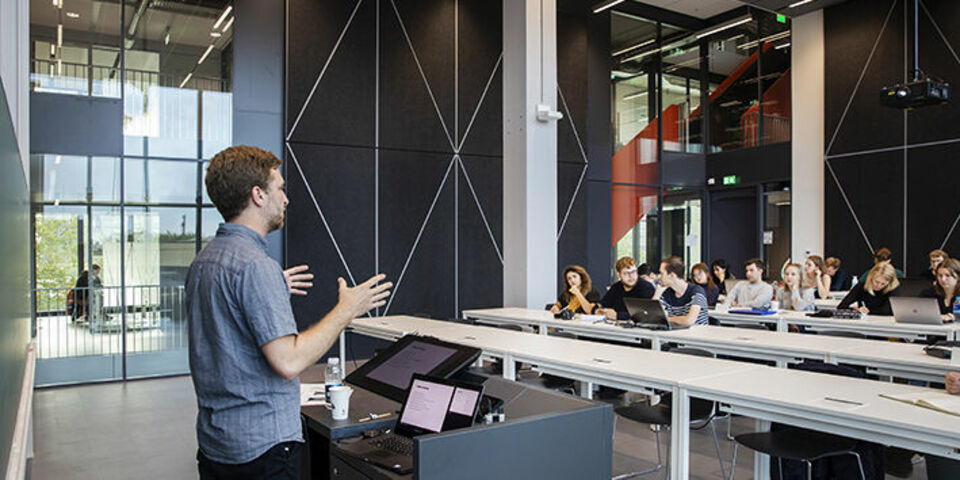This emerges from a report about starting and incentive grants that Education Minister Robbert Dijkgraaf sent to the House of Representatives today. The distribution is lopsided as well: Maastricht University gets more money than it can distribute, while the other institutions get too little.
Dijkgraaf has earmarked 300 million euros per year for ‘starting grants and incentive grants’. Of that total, 156 million euros is for starting grants for assistant professors who get a permanent contract. The other 144 million is set aside for incentive grants of varying amounts for other assistant professors, associate professors and full professors.
Calmness and space
The Minister wants to make researchers less dependent on the competition at the Dutch Research Council, allowing more ‘calmness and space’ in the system. But this appears to be more easily said than done.
A committee, which includes critics of his plans, was instituted to give the Minister advice on the distribution of the grants, even though some of the decisions, such as the distribution of the funds between the universities, have long since been taken.
Most of the universities appear to charge 20 percent in additional costs, while some charge 16 percent. At an overhead of 20 percent, 60 of the 300 million euros is apparently used for secondary matters. Too much, in the committee’s opinion.
“The committee would like the overhead deducted from the grant not to be a fixed percentage, as appears often to be the case at present”, it says in the report, “but a substantiated and realistic amount that is well under 20 percent.”
Per university
The Ministry’s aim was that the distribution of the money would actually do something for another issue: the fixed basic allocation. Some universities get more money than others simply because they were founded earlier. So when the starting and incentive grants are distributed, the newer universities such as those of Rotterdam, Maastricht and Tilburg get a bit more.
Consequently, this year Maastricht gets enough funds for 66 starting grants but probably needs only 55. In Wageningen, on the other hand, the budget is for fewer than eleven grants, while an estimated 50 assistant professors will get a permanent contract.
How many starting grants are available for new assistant professors with a permanent contract?
Amount available for starting grants2023 (mln euros) | Available grants | New assistant professors | Percentage with grant | |
Maastricht | 19,9 mln | 66,4 | 55 | 121% |
Tilburg | 12,1 mln | 40,2 | 45 | 89% |
Erasmus Rotterdam | 22,5 mln | 74,9 | 98,2 | 76% |
Groningen | 15 mln | 50,1 | 67 | 75% |
UvA Amsterdam | 14,6 mln | 48,7 | 100 | 49% |
Utrecht | 11,9 mln | 39,7 | 85 | 47% |
Leiden | 14,3 mln | 47,6 | 110 | 43% |
Open University | 2,5 mln | 8,2 | 19 | 43% |
VU Amsterdam | 14,7 mln | 48,8 | 115 | 42% |
Radboud Nijmegen | 11,9 mln | 39,7 | 100 | 40% |
Delft University of Technology | 6,6 mln | 22,1 | 60 | 37% |
Eindhoven University of Technology | 3,2 mln | 10,8 | 40 | 27% |
Twente | 3,5 mln | 11,7 | 45 | 26% |
Wageningen | 3,3 mln | 10,9 | 50 | 22% |
Total | 156 mln | 519,8 | 989,2 | 52,64% |
Shortage
The report outlines the dilemmas caused by the shortage: who will get the money? One of the recommendations to the Minister is to give extra money in the first few years; that would send out “a good signal”.
Most of the other recommendations relate to safeguarding the freedom that researchers ought to gain with the grant. For instance, make the distribution dependent on the workload at faculties and the room for unfettered research.
“We have to ensure that unfettered research does not turn into research on specific (strategic) themes”, the committee writes. It is also opposed to ‘compulsory allocation’ of the grant. There is, for example, a faculty where the assistant professors have to use some of the money to take on a PhD candidate; the committee does not want such obligations.
Universities also have to avoid the ‘waterbed effect’: when someone gets more time for research thanks to a grant, other tasks might end up on someone else’s plate. Then all you do is shift the workload rather than lighten it.
Dutch Research Council
One of the dilemmas in the policy is the relationship with Dutch Research Council NWO. Are you allowed to apply for a Dutch Research Council grant if you are already getting a starting or incentive grant? The committee believes you should be. One of the recommendations is that you ought to be able to do so “without restrictions”.
There is also a committee at the Dutch Research Council looking at starting and incentive grants. Its recommendations are expected after the summer. Minister Dijkgraaf will respond to the recommendations after the summer, according to his covering letter to the House of Representatives.


Discussion